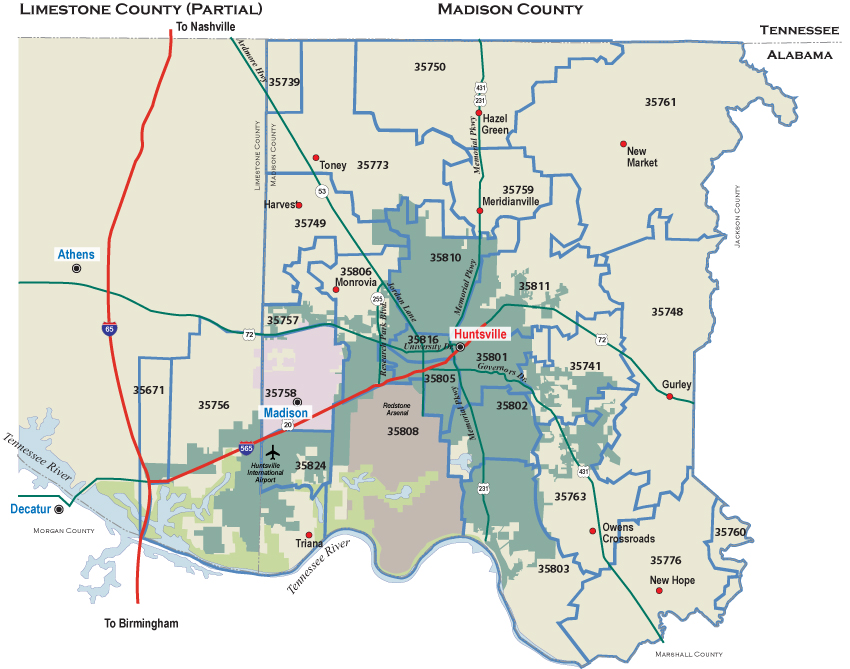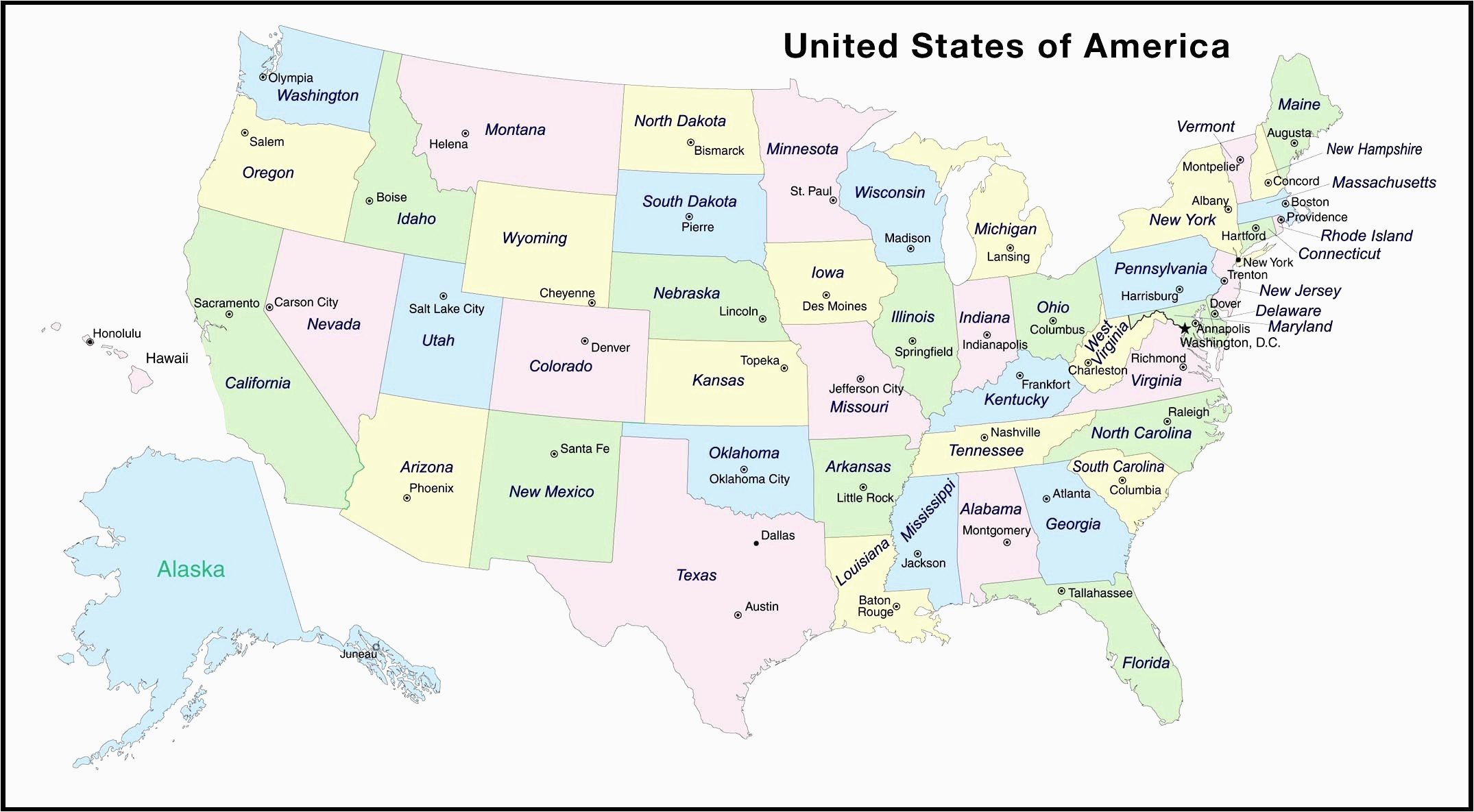Navigating Huntsville, Alabama: A Comprehensive Guide to Zip Codes
Related Articles: Navigating Huntsville, Alabama: A Comprehensive Guide to Zip Codes
Introduction
With enthusiasm, let’s navigate through the intriguing topic related to Navigating Huntsville, Alabama: A Comprehensive Guide to Zip Codes. Let’s weave interesting information and offer fresh perspectives to the readers.
Table of Content
Navigating Huntsville, Alabama: A Comprehensive Guide to Zip Codes

Huntsville, Alabama, a vibrant city known for its aerospace industry, rich history, and thriving cultural scene, is also a sprawling metropolis. Understanding the city’s intricate network of zip codes is essential for navigating its diverse neighborhoods, locating businesses, and planning efficient travel. This article provides a comprehensive guide to Huntsville’s zip code map, offering insights into its structure, applications, and benefits.
Understanding the Structure of Huntsville’s Zip Codes
Zip codes, a system developed by the United States Postal Service (USPS), serve as a crucial tool for organizing mail delivery. Each zip code represents a specific geographic area, enabling the USPS to efficiently route and deliver mail. Huntsville’s zip code map encompasses a wide range of areas, each with its unique characteristics and demographics.
A Closer Look at Huntsville’s Zip Code Zones:
Huntsville’s zip codes are divided into distinct zones, each with its own set of features and attractions. Here’s a breakdown of some key areas:
- 35801: This zip code encompasses the heart of downtown Huntsville, home to historical landmarks, vibrant nightlife, and a thriving arts scene. It’s a hub for businesses, government offices, and cultural institutions.
- 35805: This zone includes the University of Alabama in Huntsville (UAH) campus, a major research institution, and surrounding residential areas. It attracts a diverse population of students, faculty, and professionals.
- 35806: This zip code is home to the Redstone Arsenal, a prominent military base, and surrounding residential neighborhoods. It’s known for its strong military presence and a sense of community.
- 35810: This zone includes the growing South Huntsville area, featuring modern housing developments, shopping centers, and a range of amenities.
- 35811: This zip code encompasses the bustling North Huntsville area, known for its diverse population, established businesses, and historical significance.
Benefits of Understanding Huntsville’s Zip Code Map:
- Efficient Mail Delivery: Knowing the correct zip code ensures timely and accurate mail delivery, saving time and reducing potential delays.
- Accurate Address Information: The zip code provides a crucial component of a complete address, facilitating accurate communication and location identification.
- Targeted Marketing and Business Development: Businesses can leverage zip code data to target specific demographics, analyze market trends, and tailor their marketing efforts.
- Effective Emergency Response: Emergency services rely on accurate zip code information to quickly identify locations and dispatch appropriate resources.
- Community Building: Understanding the geographic boundaries defined by zip codes can foster a sense of community and encourage local engagement.
FAQs on Huntsville’s Zip Code Map:
Q: How can I find the zip code for a specific address in Huntsville?
A: You can use online tools like the USPS website, Google Maps, or various mapping services to easily search for zip codes based on address input.
Q: Are there any specific zip codes associated with particular neighborhoods or areas of interest in Huntsville?
A: Yes, each zip code corresponds to a specific geographic area, often reflecting distinct neighborhoods, communities, or points of interest. For instance, 35801 is synonymous with downtown Huntsville, while 35806 is known for its association with the Redstone Arsenal.
Q: Can I use a zip code to find nearby businesses, restaurants, or attractions?
A: Absolutely. Online mapping services and search engines allow users to search for businesses or points of interest within a specific zip code radius, facilitating local exploration and discovery.
Q: What are the benefits of understanding the demographics associated with specific Huntsville zip codes?
A: Demographic information linked to zip codes provides valuable insights for businesses, real estate agents, and community organizations. It helps understand population trends, spending habits, and other factors influencing local markets.
Tips for Utilizing Huntsville’s Zip Code Map:
- Utilize Online Resources: Leverage online mapping services, search engines, and the USPS website to access detailed information about specific zip codes and their boundaries.
- Explore Local Resources: Consult local community websites, neighborhood associations, or real estate agencies for insights into specific zip codes and their characteristics.
- Consider Your Needs: Whether you’re looking for a specific neighborhood, planning a business venture, or seeking information about local amenities, identify your needs to determine the most relevant zip codes.
- Stay Informed: Keep up-to-date on any changes or updates to Huntsville’s zip code system through official sources like the USPS or local government websites.
Conclusion:
Huntsville’s zip code map is a valuable tool for residents, businesses, and visitors alike. By understanding its structure and applications, individuals can navigate the city effectively, access essential services, and engage with their communities. Whether seeking a new home, exploring local businesses, or planning a trip, understanding Huntsville’s zip code system provides a key to unlocking the city’s diverse offerings and navigating its vibrant landscape.




Closure
Thus, we hope this article has provided valuable insights into Navigating Huntsville, Alabama: A Comprehensive Guide to Zip Codes. We thank you for taking the time to read this article. See you in our next article!